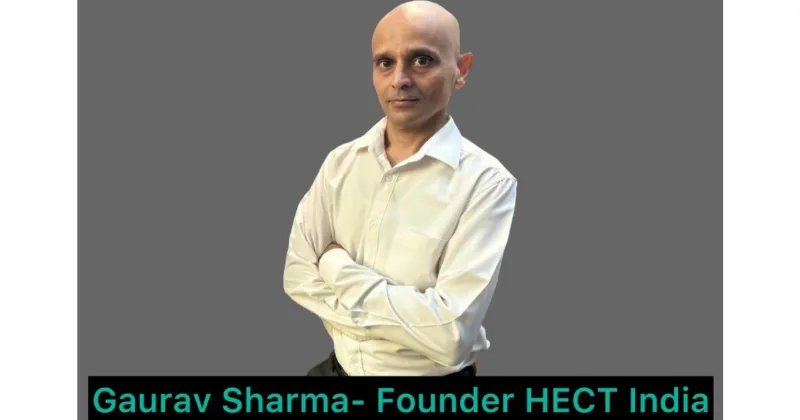Latest News
Dr. Manisha Kumari Deep shares about Censoring Emotions and its importance

Emotions and Censorship
Why, in this age of fundamental and human rights, is censoring emotions being discussed? Here I am not talking about emotional and cognitive complexities affecting the area under the cerebral cortex or our neural system. But I am concerned about raw emotions that arises due to internal stimuli and are governed by external stimuli, which might be past experiences, some fixed object, a living creature or any kind of obstruction or alignment that generated that emotion. These emotions are not shaped by one-time clicks. They take form and hold space in either our negative part, that is, the backside of the brain, or the positive part, opposite to it, generating a mental taste and image in us. When it comes to films, content and information, censorship is often condemned and emotional censorship should be encouraged. This might be a good debatable topic as the right to freedom of speech and expression is human, so it is a fundamental right, and it might seem nonsensical to discuss censoring emotions. Although in a broader sense, censorship can be considered a technique of consciousness, it is like two sides of a coin, and there can either be a winner or a loser.
Emotion is no more a misnomer term, and even a child can pronounce it and understand common emotions like crying, happiness, laughter, anger and hunger. It might be surprising that many of us do not realize hunger as an emotion because the moment we feel hungry, the next thing that comes to mind is to grab something to eat. Children cry when they are hungry as this emotion trigger’s physical reaction in them. An infant would move hands and legs quickly while crying, and a toddler might throw things in confusion. To understand this emotion, next time when you feel hungry, just sit down quietly and note down the thoughts that come to mind adding your experience from this episode of hunger to it. Maybe some people might get acidity or puke by not eating when they are hungry. So, any such succeeding episode of hunger will immediately be answered with food. Thus, this controversial term emotion can either be useful or hurtful depending on its nature or nurture.
Some emotions that might be joyful for you could possibly give pain to another. This is why sometimes people tend to mask their emotions to hide them from the world. In this process of hiding and revealing, we tend to change the very basic nature of emotion, which is about feeling it and acknowledging it instead of an illusionary escape. It is a popular belief that “Laughter is the best medicine”, but have you thought why you cannot laugh when you are in pain? Why do we often think that our emotions are being directed or manipulated by others? This is because we are not ready to take charge of our emotional state due to distasteful past experiences or some faked emotion. Carrying a poker face is not the solution, as it might result in a tornado of suppressed unpleasant emotion, which can lead to self-harm. So instead of holding one responsible for every single success and failure, try to gather good feelings and experiences from them, creating more positive emotions than negative ones.
It is widely said that “The worst mistakes are those from which you cannot learn anything.”
Hence do not be afraid to make mistakes but learn from each of them. This doesn’t imply you can do whatever you want without realizing the consequences of your actions. It means that you made an honest effort, and still, it was an unsuccessful attempt. You don’t have to be disheartened about it but learn from your mistake and not repeat it. This is possible if we can control our emotions by censoring negative emotions, as we cannot govern our surroundings.
Censored Emotions
Wellness experts say that stress results in shoulder pain and trauma, and worry and sadness show in the form of swelling or pain in your body’s hip area. Back pain is associated with relationship stress, and anger affects liver. Anxiety affects 1 in 13 people around the world, as per World Health Organization and surprisingly, social phobia is the most prominent. Acknowledging, recognizing and accepting your emotions is crucial for emotional and mental well-being. An unbalanced body will give rise to an unbalanced mind. So along with censoring emotions practicing self-care, penning down your thoughts and emotions, staying grounded and relaxed, along with social connect helps in staying happy and healthy. Channelizing your energy and thoughts in the right direction helps in maintaining a positive life. To maintain emotional equilibrium, it sometimes becomes important to censor disturbing emotions. Often under-treatment and low recognition triggers negative emotions like anger, grief, frustration and unhappiness. This may unbalance the delicate emotional state of a person. In any circumstance, one should remember that there is nothing as attractive as kindness and forgiveness. People may, at times, feel hurt during religious discussions or while sharing their religious beliefs. If such occurrences are ignored consciously, then damages can be avoided.
Censoring emotions doesn’t mean that you will not be able to experience those emotion in your lifetime. Instead, it is about classifying that specific emotion under censored category to balance emotional level and attain contentment. Censoring emotions must not be confused with the term self-censoring which according to Cambridge dictionary is control of what you say or do in order to avoid annoying or offending others, but without being told officially that such control is necessary. Censoring emotion is not any law or enforcement, but it is about choice and selectivity for betterment by a conscious mind. Unconscious mind usually captures the best of flickering moments, but our rational mind often gets stuck in situations which are of utmost priority based on needs and perception. Subsequently by being consciously selective our mind captures instances depending on goal and gain. So, if we train our minds by classifying negative emotions, religious emotions and faked emotions under censored category then the job becomes easier for our brains which will devise ways to handle those censored emotional situations or experiences. Several scientific experiments have been done to justify why some events at the same point of time become visible or invisible depending on what importance they hold for us. Circumstances and resulting emotions cannot be controlled but what we want to capture and retain can be controlled based on visibility and weightage given to them. Centred on the principle of selective selectivity we can channelize our emotions to see good in worst situations. In today’s attention deprived environment where one tends to juggle between Facebook or factbook, cook or nook, love or career, kids or house, we unconsciously delegate more work to subconscious mind and give it the power to decide between seen or felt. In an incident of road accident if you help the injured than you associate a good experience and if you ignore or flee that spot you make an alarming situation. In a conscious state you have a choice to choose emotion but in an unconscious phase you don’t have a choice but if your thoughts and mindset are positive than it is likely that you will capture the best even in an unconscious state of mind.
Negative Emotions
Mentioning about negative emotions make me think about popular quotes of wisdom. We must control our negative emotions to have a cheerful heart else our emotions will control us. Lord Rama’s words to his brother Laxman:
“We have no right to ask when a sorrow comes, ‘why did this happen to me?’ unless we ask the same question for every joy that comes our way.”
Even the scriptures say that asking for perfection in a mortal which not even all the Gods possess is a lot to desire for. So instead of running behind in making ourselves and situations perfect, just embrace the flaws in darkest of hours. The unpleasant emotions which might arise like anger, fear, anxiousness, loneliness, annoyance and sadness should not overpower you. These are just a few of the negative emotions that have been listed. Check the emoji on your mobile phone and count the countless emotions there. List out your current set of emotions and find out the reason of sadness or worry that is holding you back. Like we say that importance of happiness is felt the most after sorrow, similarly positive emotions are realized after going through negative emotions. This is why we need to censor our negative emotions so that they don’t come knocking at our door every now and then pulling us back to our past.
Forgiving and forgetting is the essence of life and those who follow are the happiest. You can put your emotions in a cupboard and close the doors but if the pile is heavy then it will all fall at the same time and putting them back will be a tough task. To avoid this cramping situation, declutter and categorize them. Holding on to painful memories adds to negative emotions lowering our cognitive performance and spirit thus increasing stress hormones. Sometimes in happy situations one might feel stressed. For instance, planning a holiday with family or starting a new job might be draining. These confusing negative draining emotions help in maintaining the intricate emotional balance. Staying optimistic helps in keeping a close eye on negative emotions along with positive ones. Only a happy soul can see another happy soul. So, rediscover yourself to discover the world.
Faked Emotion
Do not be astounded to know that technically list of negative emotion is longer than positive. Often in confusion one starts to fake emotions to keep one’s life on track without realizing that fake things don’t last long be it relationships or products.
Startling fact is that sad emotions affect you longer than happy ones. This is why you feel that others are happy, and you are not. Thus, censoring of emotions becomes more important in such situations. You will have to promise yourself to not allow negative emotions take control of you. What you may take for granted are electrochemical signals which flow in your body and originates in your brain as a response to your perception about people or incidences. So, is it wise to fake emotions sending discombobulated electrochemical signals in your body and brain?
The 7 basic emotions i.e., happy, sad, surprised, bad, energy, fearful, and disgusted that can be further compartmentalized into an astounding number of 120, we still fake emotions. Emotions are healthy because they enable us to thrive and survive. This doesn’t mean that we stop using logic and depend on emotion. Our logic guides us in selecting emotions and creating fake emotions. The emotional chemical that is not just released by our brain but also body in a quarter of a second triggering response and feedback can have long lasting effects on both mind as well as body. Feeling is outcome of mixed emotions that we gather over time. So, if your fake emotions will push mind and body to believe that things are fine, they can trick you by constantly reminding you through response and feedback that you must fix things and it cannot go this way. Censoring emotions are not about shutting doors for those emotions, but it is about consciously not letting those emotions control you. You must take control of your emotions and to make your mind and body aware, censoring those emotion is a practical approach for escaping stressful or anxious situations. Sometimes believing that everything is fine, and you are happy changes thought process, your approach and attitude towards life, and you act more sensibly.
Usually, people tend to fake emotions at work without realizing the consequences. Whether you are happy or not, but it is expected that you put a smile at workplace. You fake your emotions and pretend something that you might not be experiencing. So, when you technically experience it, the body is confused and might send wrong signal. This is why people are not able to recognize their emotions and need professional help to combat their negative emotions. Give up the idea of faking emotions and opt for meditation and emotional detox to get rid of faked as well as negative emotions.
Quoting Lord Buddha’s lines of wisdom, “What we think, we become.”
Choice is yours so choose wisely and sincerely.
Religious Emotions
History is the evidence that wars have been fought and we are still fighting over religion. Why are religious emotions different than ordinary ones and hold a special place for many of us? People follow their religion due to faith, fear, dependency, source of life, power, identity, sentiments, objective, love, joy and the list can go on. We associate religion with almost everything like festivals, clothes, paintings, food, worship, name and day-to-day lives. The numerous emotions associated with religion makes “religious emotions” a plural term.
If someone speaks against your religion or points a flaw, it becomes difficult to withstand. You might argue or repeat the same act. If you ignored it and forgot about that remark than you are at peace. But if this action is repeated it is quite possible that you may enter a flight. Thus, it can be said that religious emotions are situation driven. Sensitizing the situation or keeping it normal is totally in our hands. So instead of playing the role of a tutelage one should hold high spirits for every religion. Adopting the good and letting go of the downside might resolve religious fights and debates. Placing humanity above religion will help in letting go of negative emotions associated with religious emotions.
Instead of projecting religious emotions as over-emotionalism, persist yourself in maintaining it as sustenance for peace and prosperity. All religious feuds will stop the day each one of us change our perspective towards our and other religions. Religious emotions are not gut feelings, but it is about sensory and cognitive awareness. If it wasn’t true, then fight over Ayodhya Temple and Babri Masjid won’t have cropped up. Religious sentiments are induced in children right after birth. If the child is Hindu then puja is done, if Christian then visiting Church and if Muslim boy then Masjid. Muslim girls or women are not allowed to enter masjid. When we grow up seeing and feeling all this around us, our beliefs and emotions become more rigid and orthodox. We are not ready to accept any change and religious emotions hold the highest level. To mellow down these feeling educational institutions and corporate houses are encouraging awareness and celebration of all festivals to spread brotherhood and a feeling of acceptance for all. Globalization is also one of the driving forces in reducing religious divide. While participating in any religious celebrations what emotions we carry matters because faking brotherhood or non-acceptance can be dangerous. The moment there is a spark, fire will follow.
In order to avoid such mishappening, religious emotions must be considered as a positive emotion and all negative emotions associated with it must be censored.
Quoting Surah Al-Maidah (5:32) from Quran, “Whoever kills an innocent life it is as if he has killed all of humanity.”
No religion preaches war or loss, so respecting and accepting every religion will establish peace and progress for all. Religion should be about emotion regulation and not distress. Religious emotions are divine and should be treated that way.
Hidden Paybacks
Controlling one’s emotion by being honest and empathetic is the central principle that enables in emotional gain. Masking emotion might give temporary relief but being accepting about your emotion will unleash greater good than harm. To facilitate good emotions, some emotions need to be censored as a reminder to not encourage or hold them that unexpectedly includes religious emotions. Some say, “Work is Worship” and some may raise spirits by following “Worship Lord and not Lure”. It’s a wise saying that one should have a heart of gold and tongue of a Saint.
Quoting Biblical verse from the Bible:
“Let your conversation be always full of grace, seasoned with salt, so that you may know how to answer everyone” (Colossians 4:6).
Our words are not empty and hold lot of value. It is an easily accessible weapon that can kill without oozing blood. Speak less, listen more and be empathetic to explore the beauty of human life. Faking emotions is your hidden loss so be truthful to yourself and then only you can be kind to others. Often, we ignore the signs that life gives us by sudden incidences or prolonged failures. We tend to get engrossed in finding alternate ways to do the same mistake differently ignoring the whys and wherefores. When time knocks you off, stand up and give it a thought. Analyse the depth of the situation or problem and you will see a suitable way out. Many a times we fail to notice simple things in our daily life due to rush for worldly comforts.
Why sensitive or sensory pictures make a long-lasting effect, and we remember them? Why sensational news run on television? This is because negative things make quicker impact than positive things. Positive things must be done constantly whereas you do one negative thing and all the good done gets washed away. Emotions have both physiological and psychological impact on our mind and body. Playing with emotions can be damaging as it can either give you pleasure or harm you. Promote self-awareness and let go of any emotions that you are holding. Find time from your hectic schedule for meditation and prayer in whichever way that pleases you to stay motivated and optimistic. Acknowledge your blessings and value people not things. So, censoring of emotions becomes more important to encourage positivity inside and outside.
Manisha Kumari Deep, started her career doing research in an uncharted domain and got her doctoral thesis published as a book title ‘Organic IT Infrastructure Planning and Implementation’. She is an avid reader, writer, researcher, director and entrepreneur. Some of her popular novels are “The Trial of Hope”, “2 Moms” and “An Alien Land”. Her recent release is a short story on Amazon, title “Those Dark Green Eyes”.
She has recently contributed to the area of Green Information Technology, title “Framework for Implementing Green Information Technology”.





















